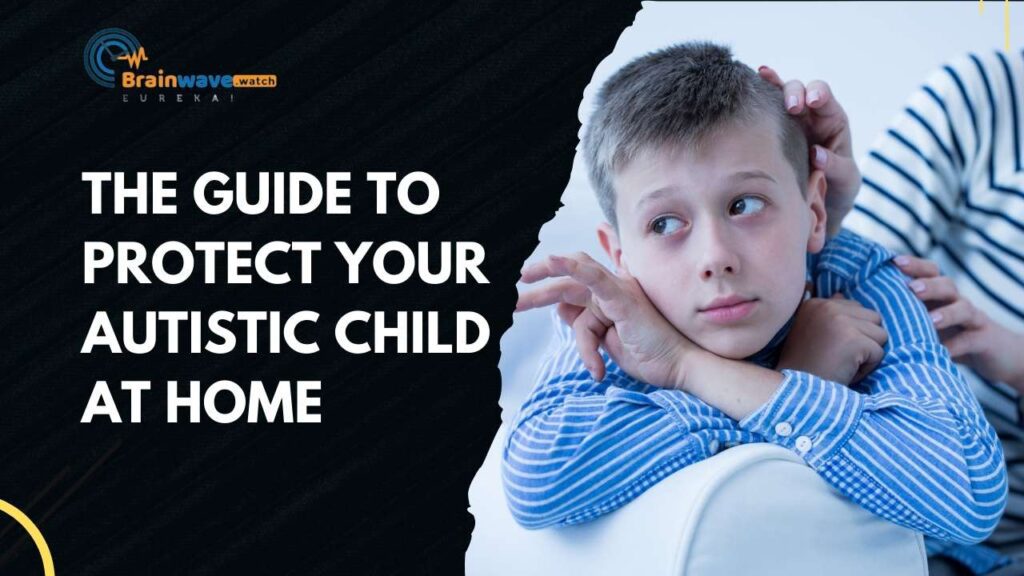Autism Spectrum Disorder (ASD) is a neurological condition that affects communication, social interaction, and behavior. High-Functioning Autism (HFA) is a subtype of ASD that is characterized by average or above-average intelligence and language development but with difficulties in social communication and interaction.
It is important to note that the term “high-functioning” does not mean that individuals with HFA do not face significant challenges or require support. In fact, many individuals with HFA experience significant difficulties in areas such as executive functioning, sensory processing, and emotional regulation.
While there is no definitive data on the prevalence of HFA, it is estimated to be less common than other subtypes of ASD such as classic autism or Asperger’s syndrome. Some studies suggest that HFA may account for around 10-25% of all ASD diagnoses. However, it is also possible that many individuals with HFA are undiagnosed or misdiagnosed due to their relatively high level of functioning.
Despite its lower prevalence compared to other subtypes of ASD, understanding HFA is crucial for parents, educators, and caregivers who work with individuals on the autism spectrum. By recognizing the unique strengths and challenges of individuals with HFA, we can provide more effective support and promote greater inclusion in schools, workplaces, and communities.
In the following sections of this blog post, we will explore the defining characteristics of HFA, the challenges faced by individuals with this subtype of ASD, as well as strategies and supports available to them. We will also address some common myths and misconceptions surrounding HFA in order to promote greater understanding and acceptance of individuals on the autism spectrum.
Defining High-Functioning Autism and its Characteristics
High-Functioning Autism (HFA) is a term used to describe individuals with Autism Spectrum Disorder (ASD) who have average or above-average intelligence and language skills. HFA is also sometimes referred to as Asperger’s Syndrome, although this term is no longer used in the diagnostic criteria for ASD.
Read also: A Parent’s Guide to Asperger Syndrome & High-Functioning Autism
What is High-Functioning Autism?
HFA is a subtype of ASD that is characterized by difficulties in social communication and interaction, as well as restricted and repetitive behaviors and interests. People with HFA may struggle with nonverbal communication cues such as facial expressions, body language, and tone of voice. They may also have difficulty understanding sarcasm, irony, or humor.
Unlike those with classic autism, individuals with HFA typically do not have significant delays in language development or cognitive abilities. However, they often struggle with executive functioning skills such as planning, organization, and flexibility.
Common Characteristics of High-Functioning Autism
Social communication difficulties are a hallmark feature of HFA. Individuals with HFA may struggle to initiate or maintain conversations with others, especially in group settings. They may also have difficulty understanding social norms and customs such as personal space or turn-taking during conversation.
Repetitive behaviors and routines are another common characteristic of HFA. These can include specific rituals or routines that must be followed precisely or intense interests in particular topics that dominate their thoughts and conversations.
Sensory sensitivities are also frequently seen in people with HFA. This can manifest as an aversion to certain textures or sounds or an overreaction to sensory input such as bright lights or loud noises.
Despite these challenges, many individuals with HFA possess exceptional intellectual abilities in areas such as math, science, music, or art. They may have a remarkable memory for details or an ability to process information quickly and accurately.
Challenges Faced by Individuals with High-Functioning Autism
Individuals with High-Functioning Autism (HFA) face a range of challenges that can impact various aspects of their lives. Social challenges are one of the most significant issues faced by individuals with HFA, as they may struggle to understand social cues and norms, leading to difficulties in making and maintaining friendships. They may also have difficulty recognizing emotions in others or expressing their own emotions appropriately, which can lead to further social isolation.
Academic challenges are also common among individuals with HFA. They may struggle with executive functioning skills, such as organization and time management, which can make it difficult to keep up with schoolwork. Additionally, they may have difficulty processing information presented in a classroom setting or understanding abstract concepts, such as metaphors or idioms.
Emotional and behavioral challenges are another area where individuals with HFA may struggle. They may experience anxiety, depression, or other mental health issues at higher rates than neurotypical individuals. Additionally, they may engage in repetitive behaviors or routines as a way to cope with stress or anxiety.
Read also: AAC Strategies for Children with Communication Difficulties
Supports and Strategies for Individuals with High-Functioning Autism
Individuals with High-Functioning Autism (HFA) may face challenges in various aspects of their lives, including social interactions, communication, and sensory processing. However, with the right support and strategies, they can overcome these challenges and achieve success in their personal and academic lives.
Early intervention is crucial for individuals with HFA. The earlier the diagnosis and intervention, the better the outcome. Early intervention programs can help children develop social skills, communication abilities, and adaptive behaviors that will benefit them throughout their lives. Parents should seek out professionals who specialize in autism spectrum disorder (ASD) to ensure their child receives appropriate interventions.
Educational supports and accommodations are also essential for individuals with HFA to succeed academically. These may include classroom accommodations such as preferential seating or a quiet study area, modified assignments or tests, or access to assistive technology. Teachers should be trained on how to support students with HFA and provide a safe learning environment.
Behavioral and emotional supports are necessary for individuals with HFA to manage anxiety, depression, or other mental health conditions that commonly co-occur with ASD. Cognitive-behavioral therapy (CBT) has been shown to be effective in reducing anxiety symptoms in individuals with ASD. Other interventions such as mindfulness-based stress reduction (MBSR) or medication may also be helpful.
Social skills training is another critical support for individuals with HFA. Social skills training can help improve communication abilities, teach appropriate social behavior, and enhance peer relationships. Social skills training can take place in individual or group settings and may involve role-playing scenarios or practicing social interactions.
Myths and Misconceptions about HFA
Despite growing awareness and understanding of autism, there are still many myths and misconceptions surrounding High-Functioning Autism (HFA). One common myth is that HFA is not a real diagnosis. This couldn’t be further from the truth – HFA is recognized as a subtype of Autism Spectrum Disorder (ASD) in the Diagnostic and Statistical Manual of Mental Disorders (DSM-5).
Another misconception is that individuals with HFA lack empathy. While some people with autism may struggle to express their emotions in typical ways, this does not mean they lack empathy or the ability to understand others’ feelings. In fact, research suggests that individuals with HFA may experience emotions more deeply than neurotypical individuals.
Finally, there is a pervasive belief that individuals with HFA cannot have successful careers or relationships. This simply isn’t true – many people with HFA are highly intelligent and talented and can thrive in a variety of fields with the right support in place. It’s important to debunk these myths and educate others about the realities of living with HFA, in order to promote greater understanding and acceptance for all individuals on the autism spectrum.
Read also: Myths About Autism You Need To Stop Believing
Conclusion
In conclusion, it is important to recognize that High-Functioning Autism is a real and valid diagnosis. While individuals with HFA may face challenges in certain areas, they also have unique strengths and abilities that should be celebrated. With the right support and accommodations, individuals with HFA can lead successful and fulfilling lives. It is important for parents, educators, and caregivers to understand the characteristics of HFA and to provide appropriate support for individuals with this diagnosis. Additionally, it is crucial to debunk common myths and misconceptions surrounding HFA in order to promote greater understanding and acceptance. By working together to provide effective support and education, we can help individuals with HFA reach their full potential and thrive in all aspects of life.







